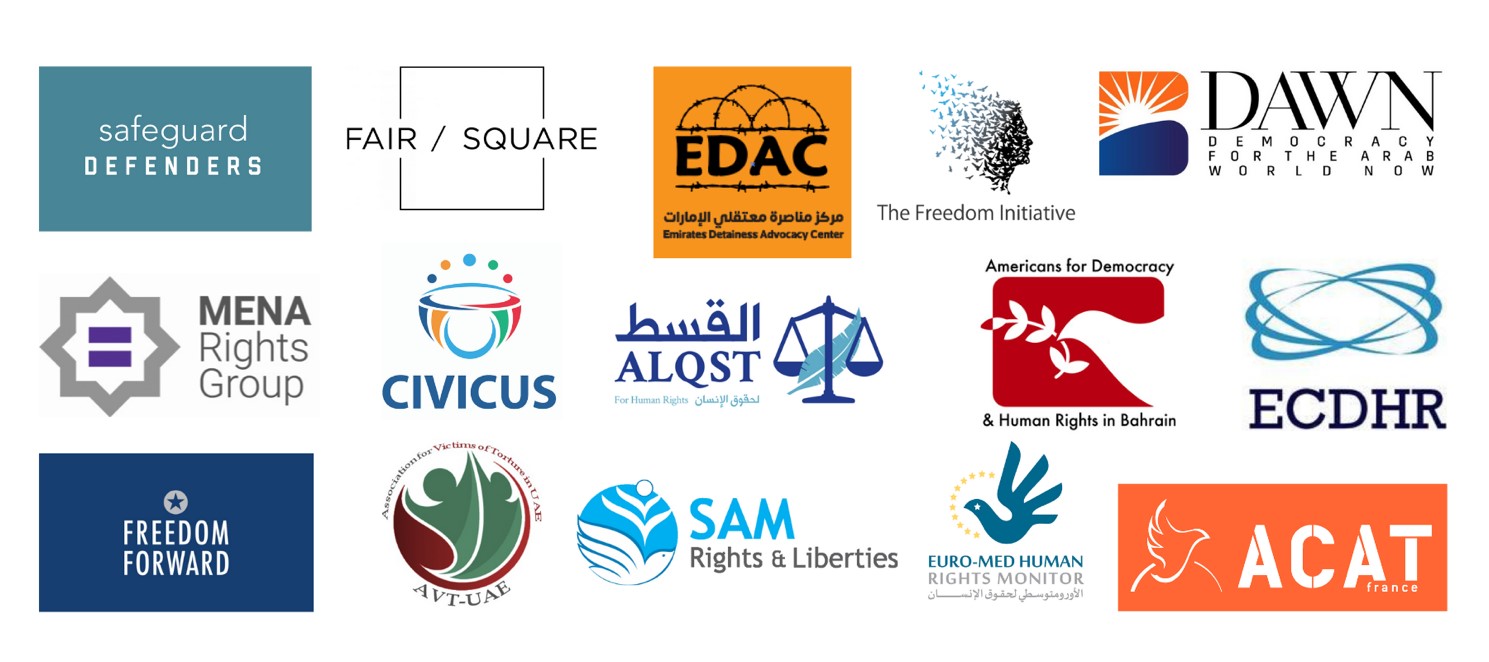24 human rights organisations call for the immediate release of Bahraini activist Ali AlHajee, detained on 28 February 2025 for “misusing social media.” His arrest is part of a broader crackdown on activists, especially around Formula 1 events. See the full statement below:
Joint Statement: Bahrain must immediately free detained human rights defender Ali AlHajee
We, the undersigned human rights organisations, call for the immediate release of human rights defender Ali AlHajee, who was detained by Bahraini authorities following a police summons on Friday, 28 February 2025, and is currently held under investigation at Dry Dock Prison on charges of “misusing social media.” AlHajee’s social media account on X was primarily used to share posts pertaining to human rights.
Ali AlHajee is a Bahraini human rights defender and former political prisoner who was imprisoned in Bahrain for more than ten years until his release in June 2023.
On Friday, 28 February, which marked the last day of Formula 1 testing in Bahrain, AlHajee received a written police summons issued by the Interior Ministry’s General Directorate of Crime Detection and Forensic Science. Shortly after, AlHajee received a phone call from an official at the Criminal Investigation Directorate (CID) instructing him to report to the gate of the CID building in Adliya immediately and on his own. After willingly obeying the summons, AlHajee was questioned about his human rights work, especially his social media posts on X (formerly Twitter).
The next day, AlHajee was arrested, and Bahrain’s Public Prosecution ordered him to be detained for seven days pending investigation on charges of “misusing social media.” Both his prolonged interrogation and detention order occurred without the presence of his lawyer, according to his family.
If formally charged, he faces imprisonment under Bahrain’s draconian laws restricting freedom of expression, particularly Article 168 of Bahrain’s Penal Code, which allows authorities to punish “any person who deliberately disseminates false reports, statements or malicious rumours, or produces any publicity seeking to damage public security.”
Ali AlHajee’s arrest is not an isolated incident but part of a broader pattern of crackdowns by Bahraini authorities around Formula 1 races in the country. The 2025 Formula Bahrain Grand Prix race kicks off on April 13.
In 2023, four Bahraini activists were arrested, threatened, verbally abused and forced to sign a pledge restricting their right to protest in the future after they held a protest near the Bahrain international circuit during the F1 race. During last year’s F1 testing in Bahrain, the son of one of these activists was arbitrarily detained following a house raid. At the same time, AlHajee’s arrest is a concerning reversal from the government’s recent steps to release those detained for exercising their internationally recognised human rights, including more than 600 political prisoners in 2024.
The United Nations Special Rapporteur on Human Rights Defenders, Mary Lawlor, raised concerns on 3 March 2025 about AlHajee’s detention by authorities regarding his human rights work, stating that he “should be immediately released & the authorities should show they are serious about creating an enabling environment for HRDs.”
We echo the concerns raised by Ms Lawlor and demand Ali AlHajee’s immediate release. In light of the above, we further call on:
- Bahraini authorities to immediately release him and drop all charges related to his legitimate human rights work. In the meantime, we urge them to ensure he has access to a lawyer of his choice and that his family is allowed to visit him.
- Bahrain’s allies and business partners in the UK, US, and EU to raise concerns about Ali AlHajee’s detention and demand his immediate release. We also urge Formula 1 leadership to support this call.
Background:
Ali AlHajee was previously convicted on charges related to peaceful protests and spent more than ten years in prison from 2013 to 2023. He was released on 2 June 2023 under Bahrain’s alternative sentencing laws. Even after his conviction was officially suspended, AlHajee continued to be targeted by Bahraini authorities and was subjected to a travel ban and briefly detained on 14 November 2023. He was then unfairly prosecuted for requesting authorities to lift his travel ban and tried on spurious charges of “entering a prohibited area.” However, he continued to highlight abuses against political prisoners and campaign for greater freedom and accountability in Bahrain after his release.
Signed by:
- Bahrain Institute for Rights and Democracy (BIRD)
- ALQST For Human Rights
- Americans for Democracy and Human Rights in Bahrain (ADHRB)
- ARTICLE 19
- Bahrain Centre for Human Rights (BCHR)
- Cairo Institute for Human Rights Studies (CIHRS)
- CIVICUS
- DAWN
- FairSquare
- Freedom House
- Front Line Defenders
- Gulf Centre for Human Rights (GCHR)
- Human Rights First
- Human Rights Watch
- IFEX
- Index on Censorship
- International Federation for Human Rights (FIDH), within the framework of the Observatory for the Protection of Human Rights Defenders
- International Service for Human Rights (ISHR)
- MENA Rights Group
- Middle East Democracy Center (MEDC)
- PEN America
- Rafto Foundation for Human Rights
- The FreeAlKhawaja Campaign
- World Organisation Against Torture (OMCT), within the framework of the Observatory for the Protection of Human Rights Defenders
The post Joint Statement: Bahrain Must Immediately Release Human Rights Defender Ali AlHajee appeared first on Americans for Democracy & Human Rights in Bahrain.
This post was originally published on Americans for Democracy & Human Rights in Bahrain.



